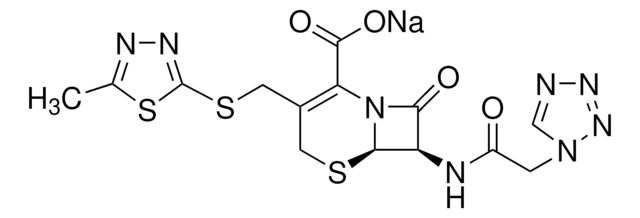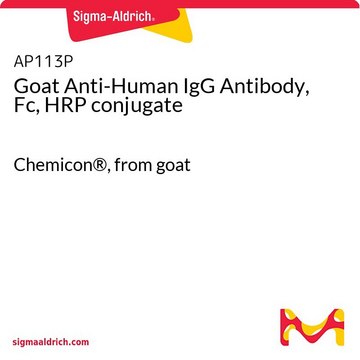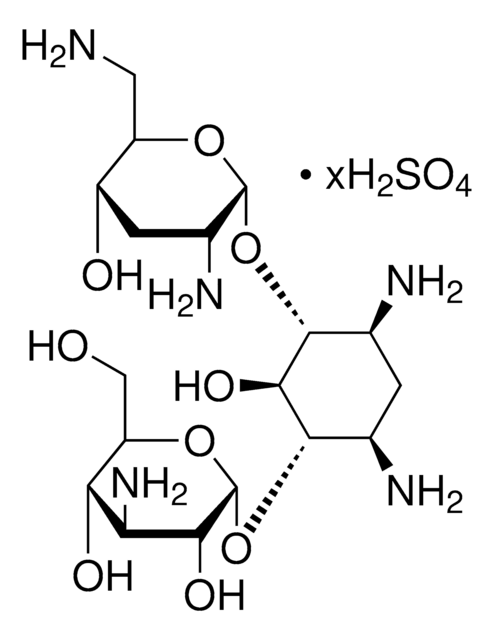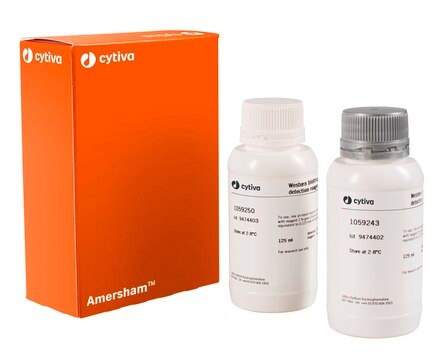P9297
Paromomycin sulfate salt
≥98% (TLC)
Synonym(s):
Aminosidine sulfate
About This Item
Recommended Products
Quality Level
Assay
≥98% (TLC)
form
powder
antibiotic activity spectrum
Gram-negative bacteria
Gram-positive bacteria
parasites
Mode of action
protein synthesis | interferes
SMILES string
O[C@H]1[C@H](O)[C@@H](CO)O[C@H](O[C@@]2([H])[C@H](O[C@@]3([H])[C@H](O)[C@H](O[C@]4([H])[C@H](N)[C@@H](O)[C@H](O)[C@H](CN)O4)[C@@H](CO)O3)[C@@H](O)[C@H](N)C[C@@H]2N)[C@@H]1N.C
InChI
1S/C23H45N5O14.CH4/c24-2-7-13(32)15(34)10(27)21(37-7)41-19-9(4-30)39-23(17(19)36)42-20-12(31)5(25)1-6(26)18(20)40-22-11(28)16(35)14(33)8(3-29)38-22;/h5-23,29-36H,1-4,24-28H2;1H4/t5-,6+,7+,8-,9-,10-,11-,12+,13-,14-,15-,16-,17-,18-,19-,20-,21-,22-,23+;/m1./s1
InChI key
OYJABWUHUYVDMJ-UDXJMMFXSA-N
Looking for similar products? Visit Product Comparison Guide
General description
Application
It is used to study bacterial protein synthesis at the level of 16S ribosomal RNA and 30S ribosome assembly. Paromomycin is used to study cytosine-cytosine (CC) mismatch-containing RNA molecules and is used to inhibit Cryptosporidium infection of a human enterocyte cell line.
Biochem/physiol Actions
Mode of Action: Inhibits initiation and elongation during protein synthesis.
Packaging
Other Notes
Storage Class Code
11 - Combustible Solids
WGK
WGK 3
Flash Point(F)
Not applicable
Flash Point(C)
Not applicable
Choose from one of the most recent versions:
Already Own This Product?
Find documentation for the products that you have recently purchased in the Document Library.
Customers Also Viewed
Our team of scientists has experience in all areas of research including Life Science, Material Science, Chemical Synthesis, Chromatography, Analytical and many others.
Contact Technical Service








